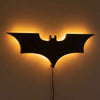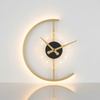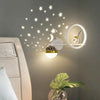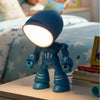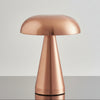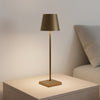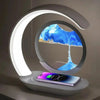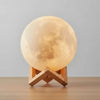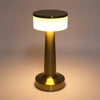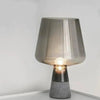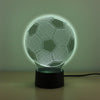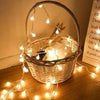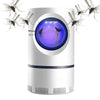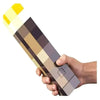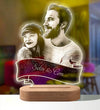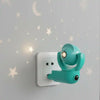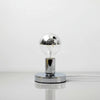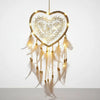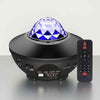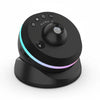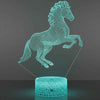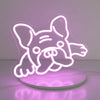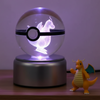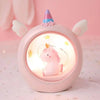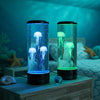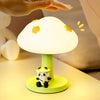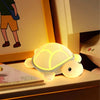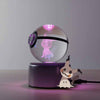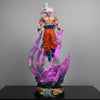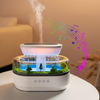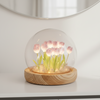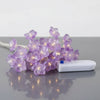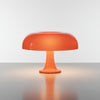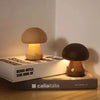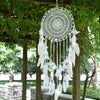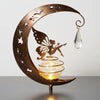Why is a Desk Lamp Good for your Eyes?
When you're studying at night, you might think a desk lamp is a good idea. If you have a roommate who you don't want to wake up with bright light , you may also be wondering if a desk lamp is good for the eyes.
People have heard that reading or studying in dim light can be harmful to the eyes. A study published by the British Medical Journal found that low light does not harm the eyes, but can cause eye strain.
The desk lamp itself poses no threat to the eyes. If you are looking at the computer and have a desk lamp, the computer does more harm to the eyes and causes eye fatigue and stress.
Is it good to study under a desk lamp?
Desk lamps are great additions to your study space and make reading and studying easier. They also reduce eye strain that can occur during long periods of reading, while providing an adequate amount of lighting for tasks. They offer plenty of lumens per lamp, focused directly on the study material.
Often when we study, our eyes can get tired and start to feel strained. This is due to not having enough light to see what you are working on and can lead to squinting or straining to focus the eyes more.
Lamps designed for studying will help alleviate this problem while still providing ambient light and making your projects easier to visualize.

What causes eye strain when studying?
Is the desk lamp good for the eyes?
If you read under thedesk lamp , it will not harm your eyesight. It may tire your eyes after prolonged exposure, but no damage will be done. It's the computer that many people use with the desk lamp next to it that causes problems for the eyes and leads to fatigue.
Desk lamps are not harmful and can help the eyes. If you are working on a computer and have an overhead light, it will create glare. The eyes will become tired and sore. When the desk lamp is turned on, it will provide a direct light source. This will help reduce glare and provide relief to the eyes.
The lamp should be positioned so that it does not shine directly into the eyes. The desk lamp will help relieve any pain or tension the person felt from staring at the computer screen for too long. It will help eyes that have been dilated most of the day.

Benefits of Using a Desk Lamp for Study
There are many benefits that come from using a desk lamp for reading and studying. These may include, but are not limited to:
-
Reduced Eye Strain: When you read and study in too dim or insufficiently focused light, your eyes will need to work much harder to keep up. That's why one of the biggest benefits of using a desk lamp is the rest it gives your eyes. They provide focused lighting to make reading and viewing work easier, reducing overall eye strain.
-
Provide Ambient Lighting (Lumens): In addition to being good sources of lighting for tasks, desk lamps are also excellent at providing lumens and illuminating the space in which they are located. This is ideal if you don't have enough overhead light for reading and studying, or if there is insufficient natural light during the day. The amount of light they provide is more concentrated, but they also brighten the room overall and are usually dimmable.
-
Energy Saving and Less Heat Produced: Desk lamps are known for their high energy efficiency. They use much less energy than traditional light sources, and most are compatible with LED bulbs. Additionally, they will produce much less heat than other types of lamps, especially compared to lamps using halogen technology. Most desk lamps will also be dimmable, allowing you to reduce energy consumption even further.

How to Choose the Best Desk Lamp?
When looking to buy a desk lamp, some types will be better on the eyes than others. Look for a softer light with a more diffuse setting than a strong light. A small desk lamp can reduce glare more effectively, as glare is tiring and painful to the eyes.
Desk lamps have advanced over the years with better lighting and technology. Many of these lamps can use LED bulbs, which are better for the eyes and more energy efficient. They are often available in light colors.
Desk lamps have gained popularity as they have been found to be easy on the eyes and provide better quality lighting. When looking for a desk lamp, choose a functional one that will meet your needs. It must fit into the allocated space and be easy on the eyes.
What Are the Different Types of Desk Lamps?
There are different types of desk lamps that you can use to make studying easier while reducing eye strain. Knowing which type best suits your needs will guide you through the purchasing process.
Here are the main types to consider for your study needs.
1. Table Lamps: As the name suggests, table lamps have a thick, sturdy base and are best suited to be placed on a table. They will be smaller than floor lamps and may have metal, plastic or fabric shades. These types of desk lamps are excellent for providing the task lighting needed for reading and studying. Several styles are available, including those that can be fixed to the desk and are compact.
2. Floor Lamps: Similar to table lamps, floor lamps are ideal for providing a significant amount of light for a room. They will generally be able to produce more lumens than table lamps due to their size and design. They are ideal for brightening a room and providing more light for reading and studying. Typically, they will have a sturdy, weighted base with a long pole and a metal or plastic shade.
3. Ceiling Lights: Almost every room in your house or apartment will have one, usually in the middle of the ceiling. They make up most of the light you have when natural light is absent and are excellent for illuminating the entire room. Ceiling lights work similarly to floor lamps by providing ambient light and illuminating the space without offering concentrated task light. However, they offer more light than other sources due to their wattage capacity, and often a single fixture can hold 2 bulbs.
4. Wall Lamps: Often called sconces, wall lamps are attached directly to the wall and will often have a swivel mechanism on the base. They will often be placed strategically on either side of the door or around furniture. They are considered ideal for reading, in part due to their versatility and option to be placed where necessary. Wall lamps can either be attached directly to the wall or installed as plug-in lights. They provide good ambient light that can be used for reading and studying.
Conclusion
The desk lamp is not bad for your eyes. When you read or watch a computer screen, this lamp is much more useful than other types of lamps. It will help reduce eye fatigue and soothe tired eyes.

